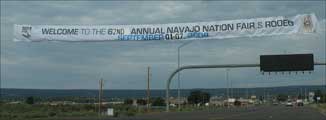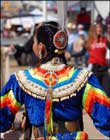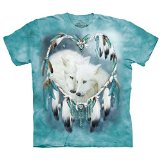People of the Legends
Indigenous People of North America - Navajo
Life at Home - Having Fun
Holidays
 People living on the Navajo Nation enjoy holidays like Halloween and Independence Day just like other Americans, and they have extra holidays such as Native American week.
People living on the Navajo Nation enjoy holidays like Halloween and Independence Day just like other Americans, and they have extra holidays such as Native American week.
Columbus Day is not celebrated by Native Americans because the discovery of America by Europeans changed the lives of the tribes and nations forever, and many people died.
Sport
 Rodeos are popular and children practice by trying to stay on the back of a sheep.
Rodeos are popular and children practice by trying to stay on the back of a sheep.
Young people like playing (American) football and many people relax by watching sport on TV.

Social gatherings (get-togethers)
 Married people and couples go to a Song and Dance, where prize money can be offered for the best dancers. These are big events – visitors and tourists are welcome and are charged a fee to get in.
Married people and couples go to a Song and Dance, where prize money can be offered for the best dancers. These are big events – visitors and tourists are welcome and are charged a fee to get in.
If the Song and Dance is outside, visitors need to bring their own chairs. Stalls sell soda (pop drinks), roasted corn, fry bread and Navajo tacos.
Pow-Wows are similar to a Song and Dance, but the contestants come from different places, often other states, and their clothes are more colourful and elaborate.
 Feathers and long fringes are popular. Some women wear dresses covered in metal cones that jingle when they dance.
Feathers and long fringes are popular. Some women wear dresses covered in metal cones that jingle when they dance.
Drum groups provide music. Again visitors and tourists are welcome and young women may sell raffle tickets to pay for the cost of their costumes and travel to the Pow-Wow. There are prizes of cash, jewellery and craft items.
 The Squaw Dance is another name for an Enemy Way Ceremony, which is a healing ceremony with a dance as well. Originally this was a war dance, to welcome home the warriors after a battle, and only young women old enough to marry were allowed to dance with the men.
The Squaw Dance is another name for an Enemy Way Ceremony, which is a healing ceremony with a dance as well. Originally this was a war dance, to welcome home the warriors after a battle, and only young women old enough to marry were allowed to dance with the men.
Families pay for this ceremony, which is held at night, so visitors are expected to bring food, such as a sack of flour, or a case of soda (pop drinks) or a can of coffee. Sometimes men give a small amount of money to each woman they dance with.
Shopping
Years ago the roads on the Navajo Nation weren’t good and not many people had cars - so the local trading post supplied everything people needed. Now the roads are good, more people have cars and there are supermarkets and chain stores about half an hour’s drive away.
 Sometimes families go to the city for a weekend, to go to the movies, visit a fair or a museum and spend time in bigger shopping centres.
Sometimes families go to the city for a weekend, to go to the movies, visit a fair or a museum and spend time in bigger shopping centres.




